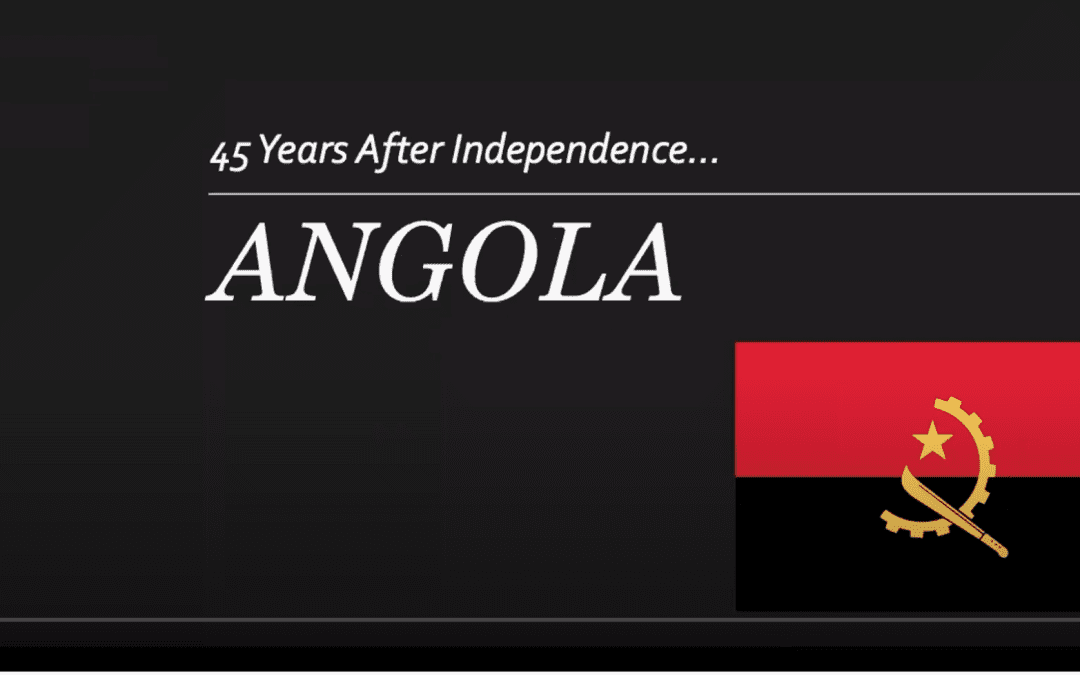Marcelina DaSilva brought a new perspective to the annual presentation Bilingual International Assistant Services hosted in collaboration with the Missouri History Museum, and the Holocaust Museum and Learning Center to commemorate the UN Day in Support of Victims of Torture and the 45 years that have passed since the beginning of the Angolan Civil War in 1975.
In years past, speakers at this event have been survivors of the atrocities themselves. This year, our speaker, Marcelina DaSilva, spoke of her experiences visiting the country for the first time after the war, as she was born after her parents had already fled the country. This new perspective allowed for us to learn about Angolan culture, and see the state of the nation from multiple perspectives.
Ms. DaSilva first provided us with some background information of her qualifications, life experiences, and important historical details that influenced the war. She was born in Namibia, where she lived for her early years before her family lived in a refugee camp in Botswana and eventually immigrated to the United States and settled in St. Louis. In 2003, soon after the war ended, she had the opportunity to travel to Angola with her mother and two sisters to meet her extended family and visit the country her parents had fled. When describing the experience, Ms. DaSilva said “The stories we heard, the connections we made on both my mother and father’s side and the adventures we had traveling through the largely undeveloped parts of the country made this, I would say, the best experience I had in Angola.” Ms. DaSilva shared how in many ways, her family shielded her from the poverty and impacts the war had on the community. She spent most of her trip in Luanda, a large city and the nation’s capital, but took smaller trips to different areas when visiting different family members. In describing her trip to Malanje, a plateau town where her mother was born, she “saw the devastation that the war had caused. For example, there were buildings that were completely riddled with bullets. We drove back, from Malanje to Luanda and it took 3 times longer than it should because the roads were in horrible condition.” She shared how while in Malanje, she did not have the usual amenities one has when traveling and, at one point, suspected she had Malaria. “None of these things that would normally make for a horrible trip, none of it sullied it for us because we were so incredibly starved for extended family connections and incredibly grateful for the hospitality. We really felt that we belonged.” Before returning to Angola on this trip, her mother hadn’t seen her extended family in over 20 years. The impact of the separation, and opportunity to reunite vastly outweighed any discomfort felt due to the state of the nation at that time.
When describing Angola during the times she visited, Ms. DaSilva paired excerpts from articles and reports with her personal anecdotes. For her 2003 trip, she shared a portion of an article originally published in The Guardian, a British newspaper. The article included details about the natural resources available in Angola and the vast potential of the region while shedding light, not only on what could be, but what it was. It detailed how “¾ of the population lived on less than a dollar a day, one in three children dies before the age of five, life expectancy is 45, and some two million people are in danger of starvation.” By providing this account, in addition to her personal experiences, Ms. DaSilva ensured that her audience understood the true conditions of the nation as a whole, and not just what she personally witnessed.
Ms. DaSilva then went on to describe her next two trips, each personal account paired with other news sources or excerpts from Human Rights Watch reports detailing the state of the nation, how the country had changed since the official end of hostilities in 2002, and where it still had areas to improve. Towards the end of her presentation, she discussed current times in Angola expressing how a new era began for the country when the long-time President stepped down in 2018 after 38 years in power. “That has meant increased accountability efforts, anti-corruption efforts, greater tolerance for human rights, etc” though there are still areas where change is needed, “including the level of xenophobia, especially against the Congolese and increasingly against Muslims. Also some tendencies by security forces to tap down aggressively against protestors.” She shared some positive recent developments, such as the decriminalization of same-sex marriage in Angola. She closed by considering how the experiences of Angolans show some similarities to the experiences of Black individuals in the United States, as groups of people who “have been victimized in so many different ways by so many different actors for hundreds of years, but they’ve maintained their pride and a sense of self.” One of the last things Marcelina DaSilva said before opening up to questions was this: “History is supposed to keep us from repeating mistakes, but we just keep repeating history.”
The event was conducted online, which means that this year you can access a recording of the presentation on the History Museum’s Youtube channel by clicking here.
For more info about UN Day in Support of Victims of Torture click here.
For more info about Bilingual International’s Survivors of Torture/War Trauma program, click here.


